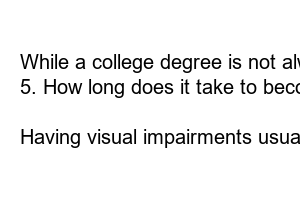경찰이 되는 방법
Title: How to Become a Police Officer: A Step-by-Step Guide
Introduction:
Are you passionate about serving and protecting your community? Becoming a police officer is a noble profession that requires dedication, perseverance, and a strong sense of justice. In this comprehensive guide, we will walk you through the steps to fulfill your dream of joining the police force.
1. Meet the Basic Requirements:
To become a police officer, you must meet several basic requirements, such as being at least 21 years old, having a high school diploma or GED, and having a valid driver’s license. Additionally, maintaining a clean criminal record, good physical fitness, and excellent mental health are crucial.
2. Obtain the Right Education:
While a high school diploma is the minimum requirement, pursuing further education can enhance your chances of becoming a police officer. Consider earning an associate or bachelor’s degree in criminal justice or a related field. This education not only enhances your understanding of the law but also showcases your commitment to your future career.
3. Physical Fitness and Conditioning:
Physical fitness is paramount for police officers as they may encounter demanding situations daily. Establishing a regular exercise routine that combines cardiovascular workouts, strength training, and endurance exercises will help you prepare for the rigorous physical challenges inherent to law enforcement.
4. Apply to a Police Academy:
Apply to a reputable police academy in your area. These academies provide comprehensive training programs that cover various aspects of the police profession, including legal procedures, self-defense, firearms training, and emergency response. Successful completion of the academy will equip you with the necessary skills and knowledge to become an effective police officer.
5. Obtain a Law Enforcement License:
After graduating from the police academy, you will need to obtain a law enforcement license in your state or region. This typically involves passing a written examination, a physical agility test, and a background investigation. The license confirms your eligibility to serve as a police officer within your jurisdiction.
6. Handle the Interview and Background Check:
Multiple rounds of interviews and background checks are commonly conducted to assess your suitability for the role. Prepare for these by researching common interview questions, practicing your responses, and demonstrating your understanding of law enforcement protocols and ethical standards.
7. Field Training and Probation Period:
Upon completion of the above steps, you will embark on an extensive field training program. This practical training phase pairs you with experienced officers, allowing you to apply your academic knowledge in realistic scenarios. After successfully completing your field training, you will enter a probationary period, during which your skills and performance will be closely evaluated.
Summary:
Becoming a police officer requires determination, education, physical fitness, and dedication. By meeting the basic requirements, obtaining the right education, successfully completing a police academy, and passing necessary exams and investigations, you can embark on an honorable career serving and protecting your community. Remember, the path to becoming a police officer is challenging, but the rewards of upholding justice and making a positive impact are immeasurable.
Frequently Asked Questions (FAQs):
1. Can I become a police officer if I have a criminal record?
Most police departments conduct thorough background checks, and a criminal record might affect your eligibility. However, each case is assessed individually, and certain offenses may not disqualify you entirely. It is best to consult with your local police department for specific guidance.
2. Do I need to be physically fit to become a police officer?
Yes, physical fitness is a vital requirement as police officers often face physically demanding situations. Maintaining a good level of fitness improves your chances of success during training and in the field.
3. What qualifications do I need to have to become a police officer?
Minimum qualifications typically include being at least 21 years old, having a high school diploma or GED, and possessing a valid driver’s license. Additional requirements may vary by jurisdiction, so it’s essential to research your specific region’s prerequisites.
4. Is a college degree necessary to become a police officer?
While a college degree is not always mandatory, it can give you an advantage in a competitive job market and provide a deeper understanding of criminal justice. Consider pursuing higher education in a relevant field for increased career opportunities.
5. How long does it take to become a police officer?
The timeframe to become a police officer can vary. It typically takes around six months to a year to complete the required training and licensing processes. However, this can change depending on the police academy curriculum and the specific requirements of your jurisdiction.
6. Can I become a police officer if I wear glasses or contact lenses?
Having visual impairments usually does not disqualify you from becoming a police officer, as long as your vision can be corrected to meet the department’s standards. It’s advisable to consult with your local police department to understand their specific vision requirements.

